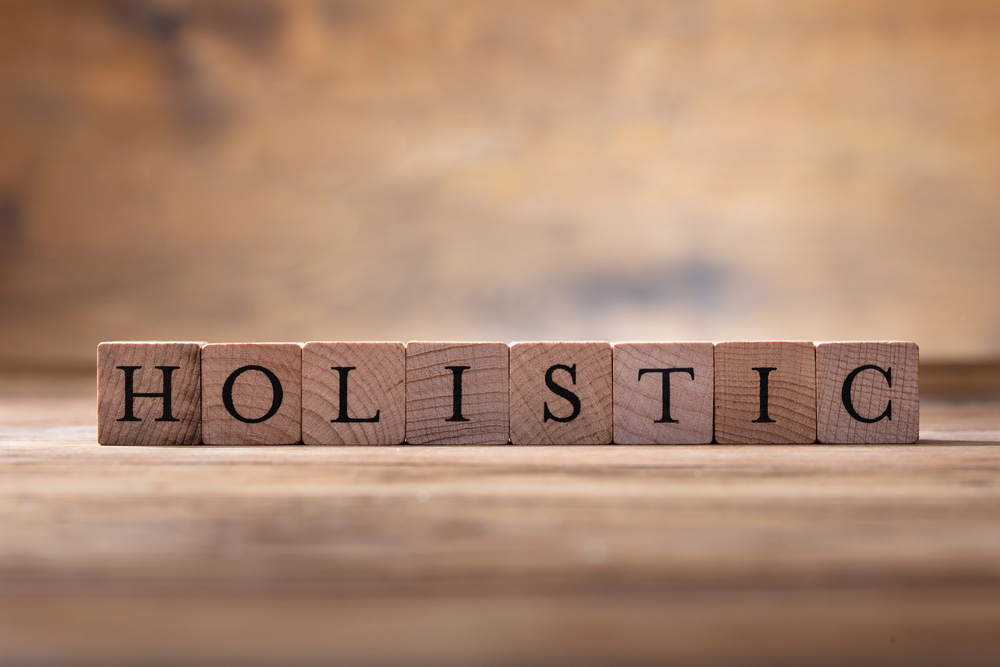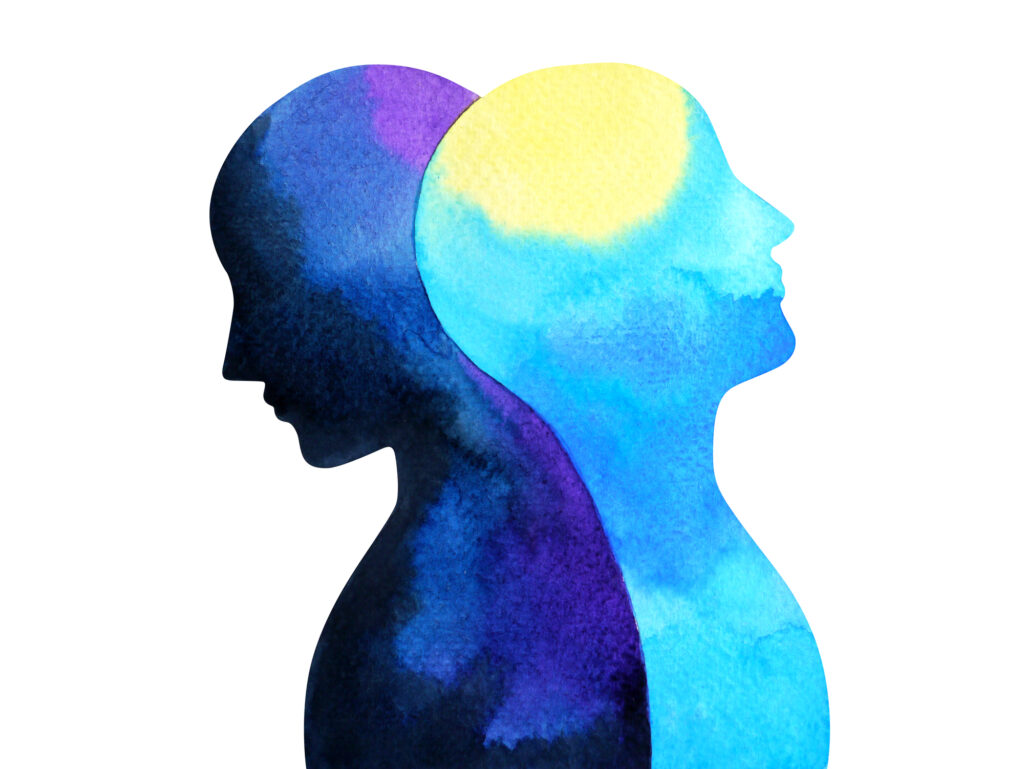Exploring Effective Alternative Addiction Treatment Options: Holistic and Innovative Approaches
 If you’re exploring alternative addiction treatment, understanding your options is crucial. This article provides a grounded overview of effective alternative therapies—like mind-body practices, nutritional support, and complementary therapies—and how they integrate with conventional treatments to aid in recovery. Discover practical alternatives to enhance your path to wellness without the fluff or sales pitch.
If you’re exploring alternative addiction treatment, understanding your options is crucial. This article provides a grounded overview of effective alternative therapies—like mind-body practices, nutritional support, and complementary therapies—and how they integrate with conventional treatments to aid in recovery. Discover practical alternatives to enhance your path to wellness without the fluff or sales pitch.
Key Takeaways
- Alternative addiction treatments are gaining popularity, incorporating holistic and complementary practices such as acupuncture, nutrition therapy, and mind-body exercises to address substance use disorders more comprehensively.
- The effectiveness of these treatments is augmented when combined with conventional methods, creating personalized plans that cater to individual needs and utilize evidence-based practices to increase recovery success rates.
- Despite promising approaches, alternative addiction treatments face challenges like limited research, professional skepticism, accessibility issues, and lack of insurance coverage, which hinder their widespread adoption.
The Rise of Alternative Addiction Treatments
There’s a growing trend in how addiction treatment is approached worldwide. A shift that’s moving away from just conventional treatments to a more holistic approach, an approach that’s been garnering attention from across the globe, from developed countries like the United States to developing nations like China, India, and Pakistan. Leading institutions such as Yale University, Harvard University, and the University of Washington are spearheading research on Complementary and Alternative Medicine (CAM) for Substance Use Disorders (SUDs) treatment.
This research is as diverse as it is comprehensive, spanning numerous disciplines including psychiatry, psychology, pharmacology, and neuroscience. It seeks to understand the complex interplay between addiction and comorbid conditions like HIV, depression, and anxiety. The rising number of publications on CAM for SUDs since 2015 reflects an increased scientific curiosity in this domain. This trend reflects a shift towards exploring innovative and holistic treatment practices in the addiction recovery journey.
Holistic Approach
Holistic therapy, a crucial facet of alternative addiction treatments, emphasizes attaining and preserving balance in all life aspects through holistic treatment programs. This comprehensive approach doesn’t just address the physical aspect of recovery, but also delves into the emotional and spiritual aspects, advocating for a well-rounded recovery journey.
Activities like exercise and meditation form the cornerstone of holistic therapy. These activities complement traditional treatments by helping individuals align their mind, body, and spirit during recovery. Take, for example, the Alpine Recovery Lodge. They tap into the power of the mind-body connection to foster positive change and effectively treat substance use disorders of various levels.
Community activities and group therapies further act as vital support systems in holistic rehabilitation centers, enhancing individuals’ sense of belonging and increasing their chances for long-term recovery.
Complementary Therapies
While holistic therapies form one part of the equation, complementary therapies form the other. Therapies such as acupuncture and Complementary and Alternative Practices (CAP) augment conventional treatments to increase addiction recovery efficacy. They function as an additional layer of treatment, supplementing traditional methods and providing a well-rounded approach to recovery.
Hotspots in the field of complementary and alternative medicine for substance use disorders include acupuncture and CAP. These therapies have been recognized for their role in reducing withdrawal symptoms and stress in individuals undergoing addiction recovery, promoting a sense of physical and emotional balance, which is the crux of the holistic recovery from addiction.
 Types of Alternative Addiction Treatments
Types of Alternative Addiction Treatments
Alternative addiction treatments encompass a variety of therapeutic methods beyond the standard approaches. They are meticulously designed to promote mental and physical well-being, offering a comprehensive approach to addiction recovery. These treatments include mind-body practices, nutritional therapy, and complementary therapies, each playing a unique role in the recovery process. Support groups for addiction can also be an essential component of alternative addiction treatments. These groups provide a sense of community and understanding, allowing individuals to connect with others who are facing similar challenges. By sharing experiences and coping strategies, support groups can contribute to a person’s overall recovery journey. Additionally, they offer a valuable source of accountability and encouragement for those navigating the complexities of addiction.
Yet, traversing through the realm of alternative addiction treatments comes with its own set of complexities. Factors such as inconsistent availability by location and the lack of regulatory oversight by the FDA can sometimes make accessibility to these treatments a bit of a hurdle. This means that while the interest and research in alternative addiction treatments are growing, the path to accessing these treatments remains a journey in itself.
Mind-Body Practices
Mind-body practices hold a pivotal role within the landscape of alternative addiction treatments. These practices, such as meditation and yoga, form the bedrock of addressing medical issues holistically, with a recognized role in addiction recovery. They bridge the gap between the mind and the body, creating a synergy that fosters recovery.
Programs like Mindfulness-Based Relapse Prevention (MBRP) and Mindfulness-Based Addiction Therapy (MBAT) utilize meditation to help individuals deal with addiction triggers and emotional discomfort. These programs harness techniques like ‘urge surfing,’ enabling individuals to ride out their cravings without giving in.
In addition, practices like yoga and meditation are also employed in addiction recovery to enhance emotional regulation and reduce stress, providing individuals with tools to manage sober living.
Nutritional Therapy and Fitness
Another important element of holistic addiction treatment is nutritional therapy and fitness. Good nutrition is vital to the recovery process as it impacts every aspect of health, helping to:
- Correct nutritional deficiencies resulting from chronic addiction
- Promote physical healing and repair
- Boost energy levels and overall well-being
- Support mental and emotional stability
- Enhance the body’s ability to detoxify and eliminate toxins
Nutritional counseling in rehab treatment significantly improves success rates with long-term sobriety by promoting positive and permanent dietary shifts.
Proper nutrition, when paired with regular exercise, boosts both mental and physical health, thereby increasing the likelihood of achieving long-term recovery. Regular exercise in holistic treatment centers improves mental and physical health, fosters discipline, and enhances productivity among residents.
Physical activities such as:
- walking
- jogging
- swimming
- dancing
are encouraged to support overall wellness and long-term sobriety.
Centers like the Alpine Recovery Lodge emphasize the importance of fitness and nutrition in creating a peaceful environment conducive to recovery. They integrate balanced meals and physical activity into the recovery process, recognizing that a healthy body is essential for recovery as it allows the body to mend and ensures the absorption of vital nutrients.
Acupuncture and Massage Therapy
Acupuncture and massage therapy are other aspects of complementary therapies utilised in addiction treatment. These therapies are recognized for their role in reducing withdrawal symptoms and stress in individuals undergoing addiction recovery. They contribute to a sense of physical and emotional balance, which is essential in the holistic recovery from addiction.
Through their stress-alleviating effects, acupuncture and massage therapy promote a sense of physical and emotional balance, crucial in the holistic recovery from addiction. This balance aids in the overall recovery process, providing a sense of calm and tranquility in the midst of the storm that is addiction recovery.
 Integrating Alternative Treatments with Conventional Methods
Integrating Alternative Treatments with Conventional Methods
The true potential of alternative treatments becomes evident when they are integrated with conventional methods, providing a novel perspective on addiction recovery. This integration has been a subject of significant interest since 2015, with publications and research highlighting the effectiveness of a blended approach in treating substance use disorders.
Effective addiction treatment often requires a variety of services, including detoxification and mental health support, that should be part of comprehensive care plans. However, the provision of comprehensive care for drug addiction is frequently hindered by the lack of interagency cooperation. This means that even though the potential of combining alternative and conventional treatments is high, the road to realizing this potential is fraught with obstacles.
Personalized Treatment Plans
An integrated approach to treat substance use disorders, including drug abuse and substance use disorder, heavily relies on personalized treatment plans. Due to the varied profiles of addiction, influenced by various factors like personal history, a comprehensive approach that combines complementary and alternative medicine with conventional treatments is often employed.
These individualized treatment plans are tailored based on the presenting symptoms of individuals seeking help and can involve diet, lifestyle changes, and varied complementary and alternative therapies. The effectiveness of the treatment plans can vary significantly with the type of substance used and the individual’s life context, underlining the importance of acknowledging the specific needs and strengths of individuals while creating these plans.
Evidence-Based Practices
Evidence-based medicine uses scientific methods to ensure patient care is based on the most recent and reliable evidence. This approach plays a significant role in the integration of alternative and conventional treatments for substance use disorders.
Ongoing research into Complementary and Alternative Medicine (CAM) for addiction is evaluated through methods like randomized controlled trials and meta-analyses. Accreditation from organizations such as JCAHO, CARF, and COA indicates a treatment program’s commitment to a specific level of evidence-based care and adherence to quality standards through regular audits.
Challenges and Limitations of Alternative Addiction Treatments
Despite their potential, alternative addiction treatments face their own unique set of challenges and limitations. These range from research gaps to skepticism from healthcare professionals, and even issues with accessibility and insurance coverage.
Excessive paperwork and non-counseling duties can delay client entry into alternative addiction treatments and reduce the time counselors spend on therapeutic services. Additionally, the terminology used in the healthcare industry can also influence perception, with ‘complementary’ treatments being more readily accepted as they are used in addition to conventional ones, compared to ‘alternative’ treatments that are seen as replacements.
Research Gaps
One of the primary challenges facing alternative addiction treatments is the lack of comprehensive research. This lack of research prevents their validation due to insufficient data on efficacy or safety, leading to skepticism among healthcare professionals.
Many CAM interventions are not reviewed by the FDA for safety, heightening concerns about their safety and effectiveness. The varied terminology and diverse range of treatments within CAM create significant challenges in consistently evaluating and comparing their effectiveness.
Despite ongoing studies into CAM for addiction, conclusive evidence on which strategies can be effectively applied to mainstream treatments is still lacking.
Overcoming Skepticism
Overcoming skepticism is a critical part of promoting alternative addiction treatments. Healthcare professionals require evidence-based validation before they can widely accept and recommend these treatments to patients. This means that the acceptance and adoption of these treatments is directly tied to the availability and access to robust scientific evidence supporting these methods.
Counselors, especially in rural areas, face additional hurdles. They need to overcome skepticism from policy makers and funding agencies that may not appreciate the effectiveness of alternative addiction treatments. This skepticism can often hinder the implementation and acceptance of these treatments in various settings.
Accessibility and Insurance Coverage
Accessibility and insurance coverage are other significant challenges in obtaining necessary alternative addiction treatments. Insurance companies often exhibit reluctance to cover more expensive addiction therapies, which affects treatment choices and access for patients. In some cases, clients resort to extreme measures, such as pretending to have suicidal tendencies, to obtain necessary treatments like detoxification services due to lack of insurance coverage.
Securing access to alternative addiction treatments can also be difficult due to issues such as limited public transportation in rural areas. These issues create significant barriers to accessing these treatments. Additionally, overall funding shortages in both rural and urban substance abuse programs hinder their capacities to fulfill basic client needs and to hire and keep qualified counselors.

Finding the Right Alternative Addiction Treatment Center
Selecting the appropriate alternative addiction treatment center is a vital step for those seeking addiction treatment towards recovery. This process involves considering a variety of factors, including facility accreditation, staff credentials, and personalized care and support. Resources like SAMHSA’s National Helpline provide a confidential 24-hour service that can be used to find local treatment facilities, such as American Addiction Centers, offering personalized treatment approaches combining alternative and conventional methods.
Treatment centers offer a range of personalized treatment programs to cater to different needs. These programs include:
- Outpatient
- Residential
- Dual diagnosis
- Specialized programs targeting specific groups like military personnel, veterans, and professionals
The key is to find a center that aligns with your specific needs and recovery goals.
Facility Accreditation and Staff Credentials
The credibility of a facility’s accreditation and staff credentials is crucial in adhering to rigorous policies, guidelines, and practice standards in addiction therapy. Facilities with accreditation such as CARF or the Joint Commission demonstrate adherence to these practices, often exceeding state licensing requirements.
Accreditation for addiction treatment centers entails on-site evaluations that encompass a variety of factors, including:
- Staff training
- Safety plans
- Quality of clinical services
- Treatment effectiveness
Accredited holistic addiction treatment centers are subject to periodic evaluations by third parties to ensure continuous high standards of care and services.
Staff in these centers include:
- Licensed medical professionals
- Mental health practitioners
- Various therapists who hold specific qualifications and certifications relevant to their roles in addiction treatment.
Personalized Care and Support
The success of any addiction treatment plan heavily depends on personalized care and support. These aspects help individuals navigate the challenging path of recovery and maintain long-term sobriety. For example, centers like the Alpine Recovery Lodge ensure long-term success post-rehab through:
- Continued personalized support
- Individualized treatment plans
- Therapy and counseling sessions
- Aftercare programs and resources
- Relapse prevention strategies
These centers provide exposure to healthier lifestyle options, emphasizing the significance of taking small steps towards recovery. This enables residents to visualize and achieve their recovery goals, instilling a sense of hope and optimism in their recovery journey.
Frequently Asked Questions
Which hormone is responsible for addiction?
The hormone responsible for addiction is dopamine, which floods the brain’s reward pathway and is associated with addictive substances, leading to addiction.
What are three options for drug abuse treatment?
Three options for drug abuse treatment are medically-assisted drug detox, individual therapy such as CBT, and group therapy. Inpatient care at a rehab facility is also an option.
What does surrender mean in recovery?
In recovery, surrender means letting go of resistance and submitting to a higher authority or new ideas, and releasing old beliefs that no longer serve a purpose. It is a vital part of the addiction recovery process.
What is the holistic model of addiction?
The holistic model of addiction focuses on addressing all aspects of a person, including the mind, body, and soul, through non-medical treatments. It recognizes the individual as a whole person, not just a collection of symptoms.
What are alternative addiction treatments?
Alternative addiction treatments encompass various therapeutic approaches that go beyond traditional methods to promote mental and physical well-being, such as mind-body practices, nutritional therapy, and complementary therapies. These treatments aim to provide alternative paths to recovery and wellness.


